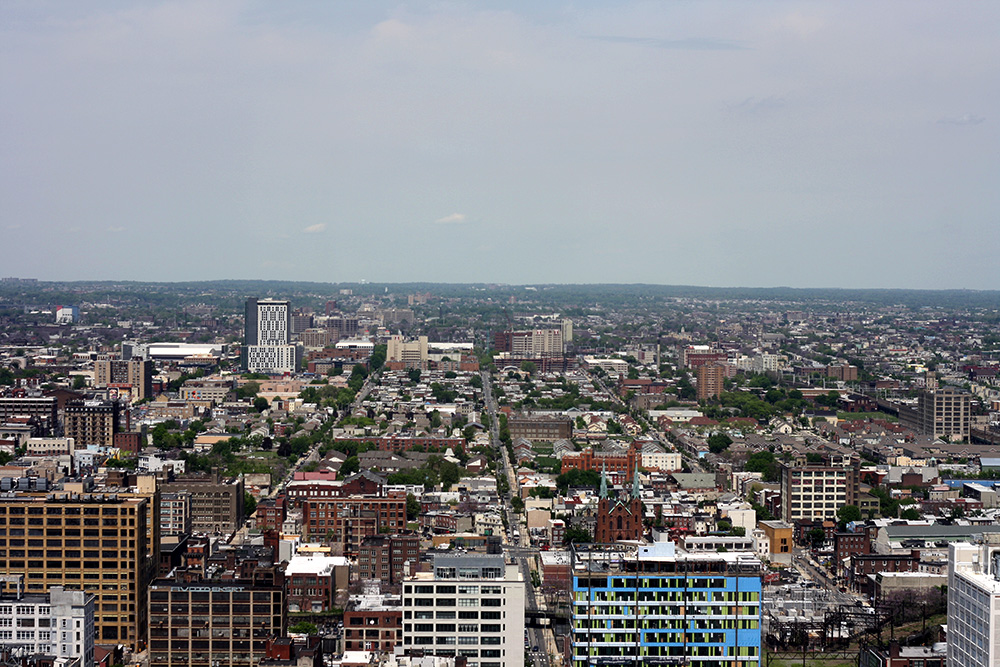News of Old City group’s demise sends chill down city’s civic spine

Just days after the Old City Civic Association voted to dissolve itself because it couldn’t get directors and officers insurance, representatives of other Registered Community Organizations (RCO) were already fearful they could one day face a similar problem.
“It’s chilling,” said Steve Huntington, director of the Center City Residents Association. “It really is chilling and unhappy news, there’s no doubt about it.”
Joe Schiavo, who had chaired the Old City Civic Association (OCCA) liquor license committee and vice-chaired the developments committee, sent letters to various organizations letting them know of OCCA’s decision. One went to the Central Delaware Advocacy Group (CDAG), itself an RCO comprised of representatives of river ward civics and other organizations.
“It’s a sad day,” said CDAG Treasurer Richard Wolk, who represents the Queen Village Neighbors Association, at a meeting last Thursday. Schiavo is vice-chair of CDAG and the group’s Old City representative.
Schiavo said the late OCCA’s carrier dropped them due to a number of lawsuits filed by developers over the past several years.
“It was apparent to the board that it would not be responsible to continue doing business as a civic association if we couldn’t protect our board members,” Schiavo said during the CDAG meeting. “And so it was a difficult decision, but the decision was made to simply discontinue doing business at OCCA.”
Read a letter from Old City Civic Association Ryan Berley on the group’s dissolution here.
Every legal claim has multiple points, Schiavo said. OCCA did some math: 80 percent of the points of claims were related to land-use issues, and 20 percent were related to liquor licenses.
“All of these claims were withdrawn,” Schiavo said. “They did their damage and were withdrawn. There was never a judgment against OCCA. OCCA never participated in a settlement.”
“That sends a pretty ominous message, doesn’t it?” said Marsha Bacal, who represents the Society Hill Towers Homeowners Association.
Several CDAG board members agreed it was ominous.
“If you have insurance, don’t use it,” said Dianne Mayer of Pennsport. “Because then you won’t be able to get it.”
Schiavo said OCCA had been insured by a “first quality” company, and when a company like that no longer insures an organization, other insurance companies take that as a red flag.
The suits were SLAPP suits—Strategic Lawsuits Against Public Participation—and “they were effective as such,” Schiavo said.
Schiavo said there are no plans to create another civic association in Old City at this time, because no one involved in the former OCCA could start one without tainting the new organization.
“If there is an organization that is to develop in Old City, it’s going to take a very different group of people with a different mission,” he said.
Attorney Paul Boni, who was in the audience for another matter, said he had no legal advice to offer, but suggested the city should buy a policy to cover the directors and officers of all RCOs.
“They could get a good rate, like a bulk rate. It’s something to think about,” Schiavo said.
Schiavo said he believes more than half of Philadelphia RCOS may not have D&O insurance, simply because they don’t know that they should have it. Over the past few weeks, PlanPhilly has reached out to dozens of RCOs, from Point Breeze to Chestnut Hill, Germantown, Tacony, Mantua and more. Of the groups we’ve talked to, all have said they carry D&O insurance, but many have not responded to requests for comment.
“It might serve the public well if the city were to step up, take some action that would help protect all those RCOS…and create an umbrella for them,” Schiavo said.
Boni suggested a foundation or wealthy benefactor might also step up to cover the cost.
“True,” said CDAG Chairman and Northern Liberties Neighborhood Association President Matt Ruben. “But it has got to be a collective, because the problem with Old City was not that they couldn’t afford D&O because of these claims, it was that nobody would write them a policy. They couldn’t get it at any price, for all intents and purposes.”
Lorna Katz Lawson, of Society Hill, asked if RCOs couldn’t join forces to build a defense fund, and essentially insure themselves.
Ruben said typical D&O insurance runs $1,000 to $2,000 per year, and a legal defense fund would need more like $20,000 or $25,000 in it.
“Sure,” Lawson said. “But there are a lot of RCOs.”
Moss said he thinks it will be difficult to convince an insurance company to take on all civics as a group as well, because some civics are very careful, and others, not so much.
“That’s why the city is going to have to do it if it’s going to work,” Ruben said. “A private cooperative is not going to have a great chance at succeeding.”
Tammy Leigh DeMent, who represents the Pennsylvania Horticultural Society on CDAG, said there was perhaps hope the city would step in.
“Parks and Rec worked with the risk management department to create an umbrella insurance for friends of parks groups, when they have events and cleanup dates,” she said. “The city has recognized the value of volunteer organizations and the need to protect them.”
Schiavo can finish his term on CDAG’s board even though he no longer represents a civic association. And after that, he could stay on if the board votes him in.
“I’d like to have you on as a statement that you’re still here,” Ruben said. “No one can make us take you off this board.”
After the meeting, Schiavo said one problem he sees with civics getting together in an insurance pool is that those that haven’t been sued may want to stay under the radar and not bring attention to themselves by joining a pool. The only civics interested in joining together may be ones that had been sued, he said. That would be like a health insurance pool in which every member has had cancer, he said: costs would be high.
Steve Huntington of CCRA said that the bad news about Old City is unlikely to change how his group weighs in on projects.
“This is not to say that that couldn’t happen,” Huntington said. “It’s certainly distressing to hear about Old City, and I think it’s bad for the city, but in terms of how we conduct ourselves, I don’t think we’re going to make any changes.”
Lou Iatarola, a past president and current zoning committee member for Tacony Civic Association, said the news of Old City disbanding was “disheartening.”
“Many times these associations are a community’s last hope when a developer comes in and tries to steamroll over otherwise helpless residents who feel a project is incompatible with their community’s aesthetic or its strategic plan,” Iatarola told PlanPhilly in an email. “A dissolution of civic associations would certainly put more pressure on district councilpersons who will feel the added burden of mediating sometimes complex zoning issues.”
Joe Schiavo said RCOs would less often be potential lawsuit targets if Philadelphia’s zoning culture changed. He was among a group who traveled to New York City to learn about their transition to a new zoning code, and one thing everyone learned was that New York hardly ever grants a variance. They stick to their code. Philaelphia has a new code, but that switch in thinking hasn’t quite happened yet, he said. So civics still spend a lot of time trying to convince the city to uphold its own zoning code.
WHYY is your source for fact-based, in-depth journalism and information. As a nonprofit organization, we rely on financial support from readers like you. Please give today.






